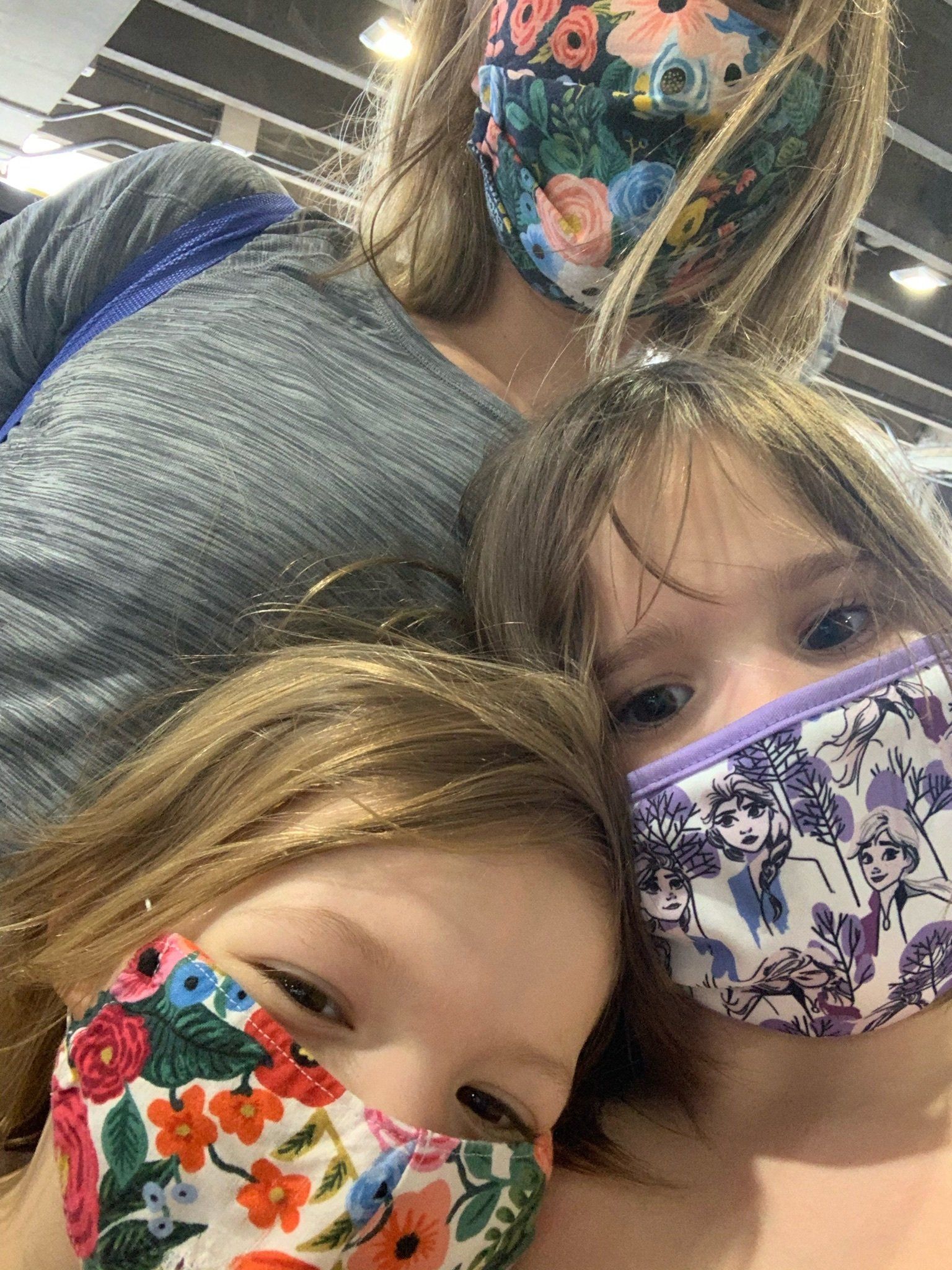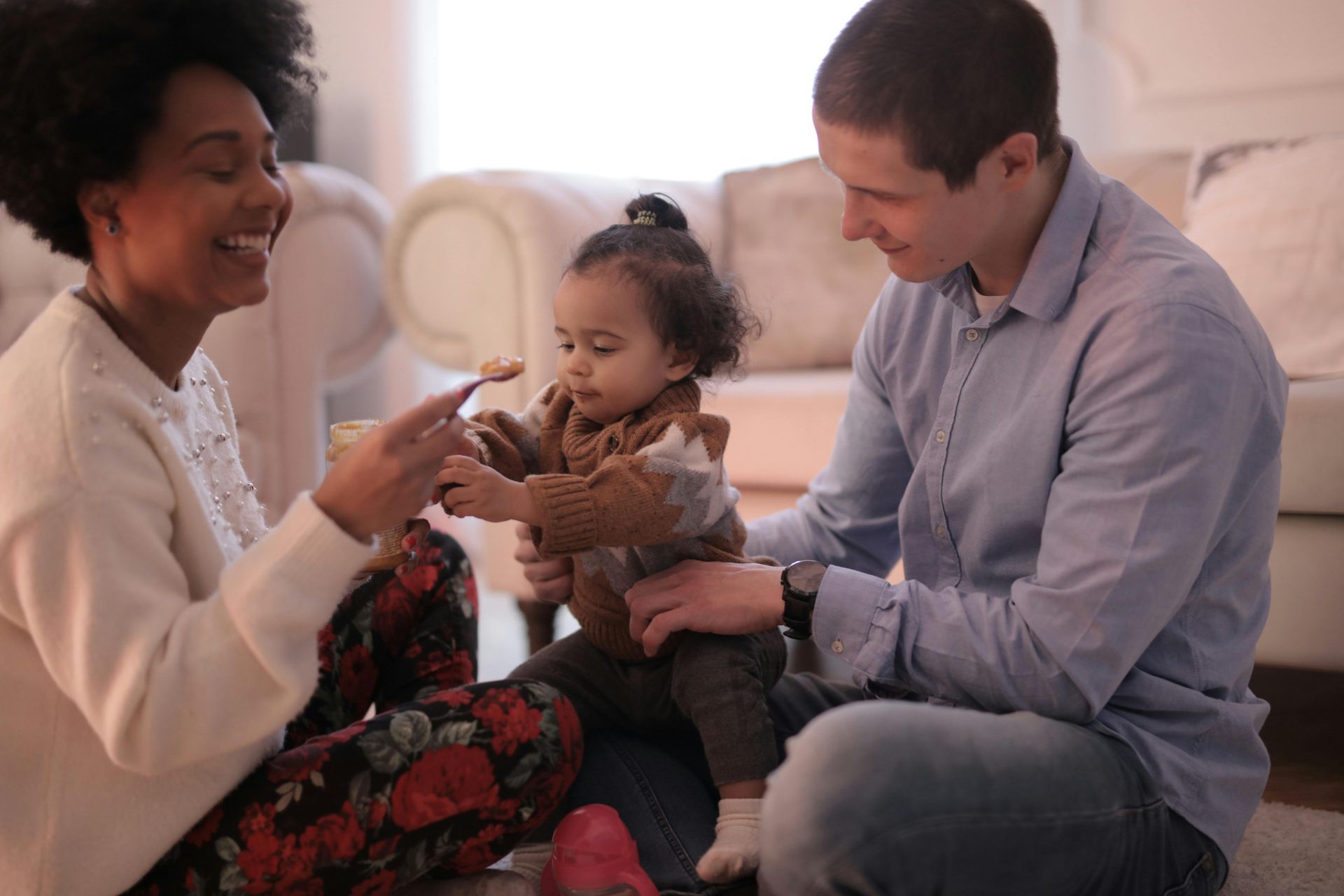BUZZZZZZ.
The dreaded phone call.
It usually comes at 10:42am, right before your really important 11 o’clock meeting with your boss.
Every working parent knows exactly what I’m talking about. When you look down in the middle of the day to see that your kid’s school is calling, it’s never good news. They never call to say, “Your daughter is just the absolute best. Oh, also, you won $100 in the raffle. And you’re beautiful.”
It’s always something like, “Your daughter has a fever and she says she told you she wasn’t feeling well before you dropped her off.”
Or “Your son peed his pants. Again. And we have no more extra clothes for him.”
Or the absolute worst, “We can’t calm your daughter down. You need to come get her.”
Hearing those things on the other end of a phone call can make your heart sink as a mom. And, immediately, the mom guilt starts to set in.
You feel like you aren’t doing enough. You’re irritated that you’ll have to go get your child. You feel guilty that you feel irritated.
All the while, you’re panicking about missing work.
Who is going to watch my kid? If I take another day off my boss is going to flip. I’m already so behind because I took a day last week for that field trip. Not sure I can convince my husband it’s his turn to watch her. When was the last time it WAS his turn, anyway?
What happens when it’s not just for a sore throat or an upset stomach? What happens when a child is legitimately struggling in their classroom?
As a mom who has a child with significant anxiety struggles, I’ve seen that situation play out. Teachers can’t (and shouldn’t have to) stop their entire day in order to deal with one student. Administrators aren’t usually trained in that sort of thing. And guidance counselors at schools are already overwhelmed and overworked.
So what happens when both parents work and literally cannot miss another day? According to federal data, in 2019 over 53% of American households were dual income (we still don’t have current data of what COVID has done to that...but we know moms took a huge hit!) Those are going to be the families that, more than likely, struggle harder when it comes to a last minute change at school or daycare.
Listen, I’m not saying send your kid back to school with strep throat because you can’t take off work. As a pediatrician, that’s not anything I would recommend. But what I am saying is that we need to take a hard look at what we’re offering families when their children are struggling with their mental health.
Parents are blamed for just about everything “wrong” with their child. And, I can tell you from personal experience, they’re already blaming themselves enough as it is. So when they’re forced with the choice to send their child home to an empty house so that they can literally put food on the table, it’s not an easy one.
There was a day last year where I was called to my daughters’ school because my youngest was having a really hard time in her classroom. She was telling her teachers she thought every other kid was stupid and that they needed to be informed about their inferior intellects.
At her core, she’s the sweetest kid, but she was struggling with her own self-esteem at the time, and her self-criticism was leaking out onto everyone around her. And the entire time, I was consumed with thoughts on, not only how we were going to help her cope, but what we could even do in that moment.
All I wanted was to be able to take her home and cuddle her for the rest of the day and that just wasn’t a reality for me. I had to go back to work.
So what do we do? I think we have to look at it from a societal, school, and parent’s responsibility.

First, we need better funding for mental health evaluations at schools. We need better support for teachers at school to deal with the mental health issues that kids are facing. Especially with the pandemic, you’re GOING to have kids who are struggling more because of what has happened in the last 2 years. We need to face the facts and invest more as a society to bolster up those families.
Second, we need to invest more resources into training teachers on how to deal with problem behaviors. This allows them to respond appropriately and confidently, rather than just reacting and having to call the parents right away. I’m
not saying don’t call the parents. But if there are other strategies that can be used prior, the entire situation can be diffused in the classroom and then follow up can take place with the parents later.
Third, parents, if you’re noticing that your child’s having a hard time, talk to your pediatrician. We want to help you be able to find solutions and get you connected to the right resources and professionals that can help address those mental health needs. This could be a school counselor, a psychologist, or even a psychiatrist if that’s necessary. We really do want to partner with you.
Moms, don’t feel like you have to take this on all by yourselves. That’s not fair to you and that’s not fair to your child. If there are two parents in the home, both need to be helping out. Cultivate that parenting village around you. So when these crises do happen, it’s not always
you who has to leave work every time.
I had a conversation with a mom the other day who had a great idea: You can create a joint email address for the school to contact you, so both you and your spouse have access to it (and notifications turned on!) That way, when something comes in, you can take turns communicating and then taking action.
So, does choosing to work outside the home put your child’s mental health at risk? The answer is (obviously) no. However, you have to have strategy in place so that if there was a situation where your attention was needed, you’re not the only one who’s walking into that battle.
If there are two parents in the home, there are two parents to love and take care of a child. Two parents whose responsibility it is to make sure that their child is safe and is safe with others.
Parenting was never meant to just be a mother’s job.












